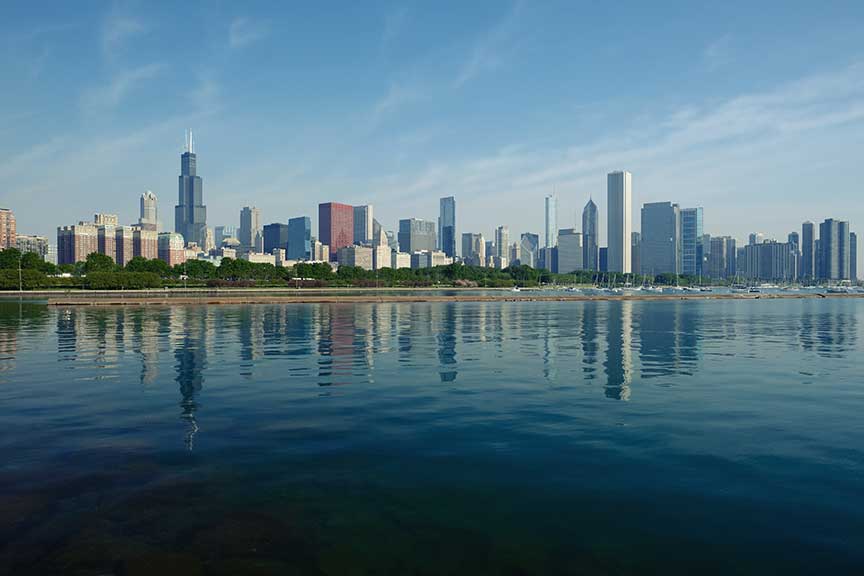Chicago

Basic Information
Population 2021:2,696,555
86.3% of the populution has a HS or higher education
There are 1,112,581 housing units in the city
20.2% of the residents were born abroad
Median Household Income:$65,781
17.1% of the Residents Live below the poverty line
Total Area 227.73 Sq Miles
65,817 of the city residents are veterans
Chicago Union Station
USS Chicago C
USS Chicago CA-29
USS Chicago C-136
Chicago Liquor Industry: A History
The History and Evolution of Chicago’s Thriving Food and Restaurant Scene
History of Chicago
Chicago is a major city in the United States located in the Midwest region of the country. It is known for its rich history, diverse culture, and as a major center for transportation, commerce, and industry.
The area now known as Chicago was originally inhabited by various Native American tribes, including the Potawatomi, Miami, and Sauk people. In the late 17th and early 18th centuries, French explorers and fur traders established a presence in the region, and the French founded Fort Dearborn in what is now downtown Chicago in 1803.
After the Louisiana Purchase, control of the region passed to the United States, and the town of Chicago was officially incorporated in 1837. During the mid-19th century, Chicago experienced rapid growth, fueled in part by the expansion of the railroads and the city's position as a major transportation hub. The city also attracted many immigrants, particularly from Europe, who helped to establish a diverse and vibrant culture.
Chicago played a significant role in the development of the United States during the late 19th and early 20th centuries. It was home to the world's first skyscraper, the Home Insurance Building, which was completed in 1885. The city also hosted the World's Columbian Exposition in 1893, which showcased the latest technological and cultural advancements of the era and drew millions of visitors.
During this period, Chicago also became known for its industrial might, particularly in meatpacking, steel production, and other manufacturing sectors. However, the city was also plagued by political corruption and organized crime, with figures like Al Capone and John Dillinger becoming infamous for their exploits during the Prohibition era.
Chicago has been the site of many important events in American history, including the 1968 Democratic National Convention, which was marred by protests and clashes with police. The city has also been home to many prominent civil rights leaders, including Reverend Martin Luther King Jr., who marched in Chicago to draw attention to the city's segregated housing policies.
Throughout its history, Chicago has been shaped by its diverse population and its position as a hub of transportation and commerce. Today, the city is home to many important institutions, including the Art Institute of Chicago, the Field Museum of Natural History, and the University of Chicago. It is also a major center for finance, with the Chicago Board of Trade and the Chicago Mercantile Exchange both located in the city.
Chicago has faced its share of challenges, including economic downturns, racial tensions, and urban violence. However, the city has also demonstrated resilience and a commitment to progress, with initiatives like the Burnham Plan, which sought to improve the city's infrastructure and public spaces, and the rebuilding efforts after the devastating Great Chicago Fire of 1871.
 >
>